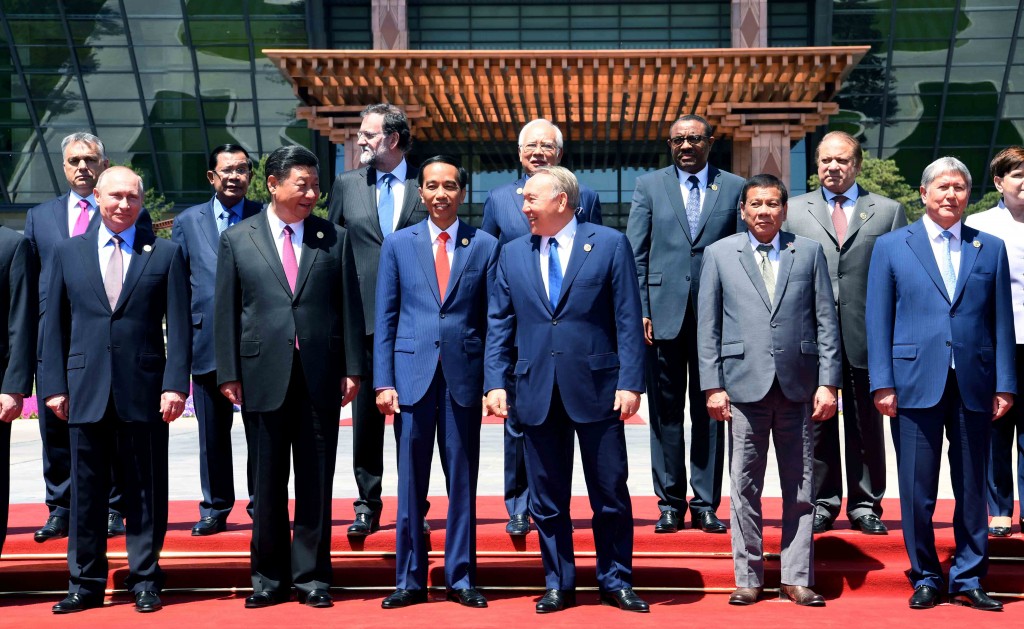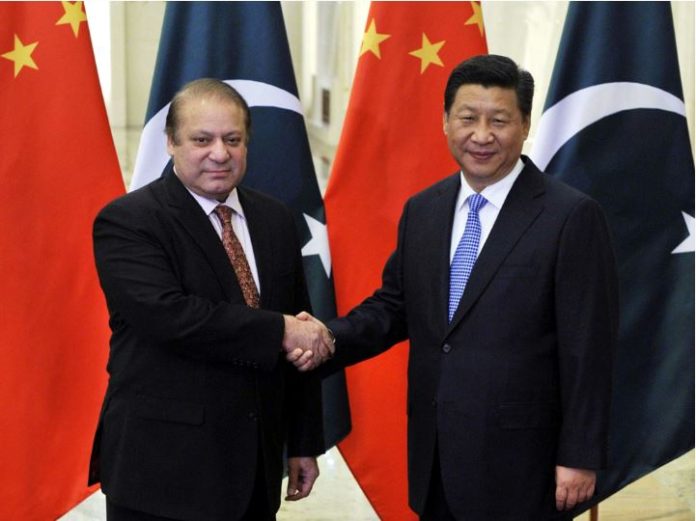Prime Minister Nawaz Sharif met with the Chinese President on May 13 on the eve of Belt and Road Forum, and interacted formally and informally with over 50 heads of sates and governments including President Trump on the sidelines of US-Arab-Islamic summit. Prime Minister Narendra Modi has also sent his emissary indicating his wish to meet Nawaz Sharif on the sidelines of SCO summit next month. After having blocked the bilateral channels by avoiding to talk, India has approached the International Court of Justice (ICJ) for saving Indian terrorist mastermind- cum-spy Kulbhushan Jhadeve. Now a temporary stay is effective pending the final decision. Whatever the final verdict of ICJ with regard to its jurisdiction, India is in a lose-lose situation. If India’s plea is accepted then it will also be applicable to Shimla Agreement and will have lasting impact on settlement of the Kashmir dispute. For the betterment of Kashmiri people, Pakistan should consider the option of letting India win the case in ICJ.
Indian Prime Minster Narendra Modi has publicly declared that Indian government would utilize all means at its disposal to isolate Pakistan diplomatically, and also economically. Some years ago India had formulated a policy that it would not allow access to those Multi-National Corporations which have their businesses in Pakistan; and those wishing access to India will have to abandon their enterprises in Pakistan. Nothing has happened to Pakistan’s economy. Modi’s rhetoric to withdraw from Indus Water Treaty has also derailed.
Even though India is of the view that it wants to isolate Pakistan on the pretext of difference of perception as to how to deal with the menace of terrorism, its effort is much more comprehensive. It is part of India’s overall zero-sum policy towards Pakistan, even though it is detrimental to the region’s wellbeing and prosperity of its own people. The sorry state of affairs in which SAARC has ended-up is a case in point. India has been instrumental in sabotaging a number of SAARC summits on one pretext or the other and in scuttling the prospects of socio-economic growth. SAARC had the potential of becoming a regional engine for connectivity and a work-horse for economic growth, but in reality it has become a dormant organization limited to occasional debating sessions. Narendra Modi thinks that his strong anti-Pakistan stance would win him more votes, and it does at times, giving him tactical pleasure, but at the cost of long term strategic nightmare.
New Delhi’s flawed policy has failed to muster necessary support of international community for isolating Pakistan. Instead, there have been an increased number of visits of foreign leaders to Pakistan and it is actively participating in a number of regional developmental, security and peace initiatives. This fully acknowledges that the world acknowledges the vitality of Pakistan’s strategic location, effort and endorses its global, regional and domestic policies — especially on counter terrorism.
India has a bi-partisan interest to keep the anti-Pakistan pot boiling on one pretext or the other. And when there is no reason to do so, its agencies conduct false flag operations; however such gimmicks are no longer selling well amongst the international community. The sufferers are the people of India because half of them live below UN defined poverty line, and blocking the regional connectivity and economic cooperation initiatives would only perpetuate their misery. Scuttling of SAARC’s growth potential and walking away from Iran-Pakistan-India gas pipeline has neither enhanced India’s prestige abroad, nor has it added to the prosperity and wellbeing of its downtrodden masses.
Once again India is on the wrong side of history, by pitching against Chinese Belt and Road initiative and swearing to undo China Pakistan Corridor, Indian leadership is blocking the historic development opportunity from reaching out to its people. India missed the summit on Belt and Road initiative, on the pretext of sovereignty issues over CPEC. Nonetheless, the event received overwhelming response not only from countries of the region but also from across the globe, even some countries not likely to have even a remote connection with OBOR chose to attend. The moot was attended by 29 heads of states and governments as well as 1500 delegates. One wonders as to who is getting isolated? India’s policy paradoxes are strangulating it to isolation. Notwithstanding, it will continue to play fiddle to the US policy of impeding China’s peaceful rise and continue to field Afghanistan against Pakistan.

During his meeting with Nawaz Sharif, President Xi Jinping stated that China greatly valued its all-weather strategic friendship partnership with Pakistan: “China and Pakistan are iron brothers and this partnership has withstood the test of time”. Two leaders discussed a range of issues of bilateral interest as well as developments in the region. Prime Minister Nawaz Sharif expressed support to “One China Policy” and other core issues including Tibet, Xinjiang and South China Sea. He deeply appreciated President Xi’s vision of “Belt and Road Initiative” and hosting “Belt and Road Forum” with the timely theme of “Cooperation for Common Prosperity”. Nawaz hoped that the forum will serve as an important platform for win-win cooperation among a large number of countries.
India and Pakistan have the same membership status in Shanghai Cooperation Organization (SCO) and Nuclear Suppliers Group (NSG). This dispels even remote prospect of Pakistan getting isolated any time soon. Entire region is gravitating towards China, and CPEC-OBOR while India has setup a special fund to sabotage CPEC. Belt and road goals are aligned with Pakistan’s foreign policy’s cardinal points of peace and development, hinged on regional connectivity. Window of opportunity is limited for India as China has options to follow alternative route for eastern prong of Belt and Road, circumventing India.
At a time when major and profound changes are taking place both internationally and regionally, exemplary cooperation between China and Pakistan serves the fundamental interests of the two countries and helps in promoting regional peace and development. Pakistan, in its own right is achieving accelerated social and economic development with a steady uptick in GDP and various international entities are acknowledging this upward trajectory of its indicators.
CPEC is an economic undertaking open to all countries in the region and has no geographical boundaries. Project is underwriter for building a peaceful, connected and caring neighborhood by shunning mutual differences. Peace and development go hand in hand, and nothing can pave the path for peace and security more than interdependent economic development.
The OBOR signifies that geo-economics must take precedence over geo-politics, and that the centre of gravity should shift from conflict to co-operation. As OBOR is unfolding across continents, it is fostering inclusion, creating tolerance, and promoting acceptance of cultural diversity. CPEC- OBOR aims to connect the neighbourhoods of East and West Asia. CPEC would make Pakistan both a conduit and destination for cross-regional investment and trade.
Pakistan admires China’s vision and ingenuity in developing corridors across regions. Together Pakistan and China are striving to leverage geography for economic prosperity alongside evolving a caring neighborhood. CPEC is owned and nurtured by all of Pakistan, it is compatible with Pakistan’s vision for 2025, where investment is undertaken in different sectors such as energy, industry, trade and transport. Efforts are being made to bridge the gap between economic growth and social development through a focus on education, gender mainstreaming and health.
India is at historic crossroads. Through region friendly policies it could become a partner and facilitator of development and prosperity. However, out of misplaced hubris, it is poised to continue making blunders of strategic proportions as it made while rejecting the Cabinet Mission proposals in 1946. In a state of frustration India is foreclosing its options to reconcile with fast moving ground realities. In the long term, India may be heading towards strategic isolation.




